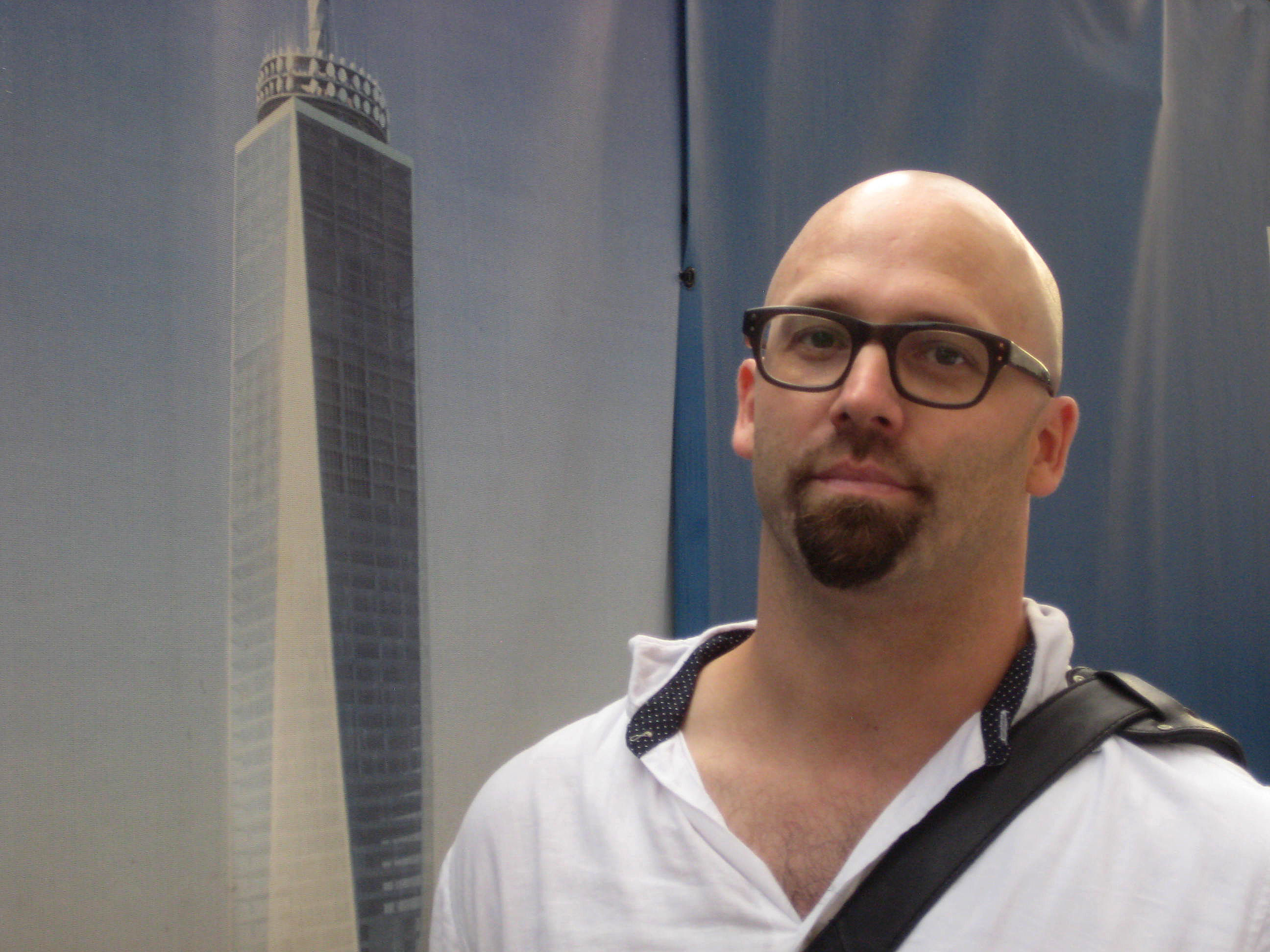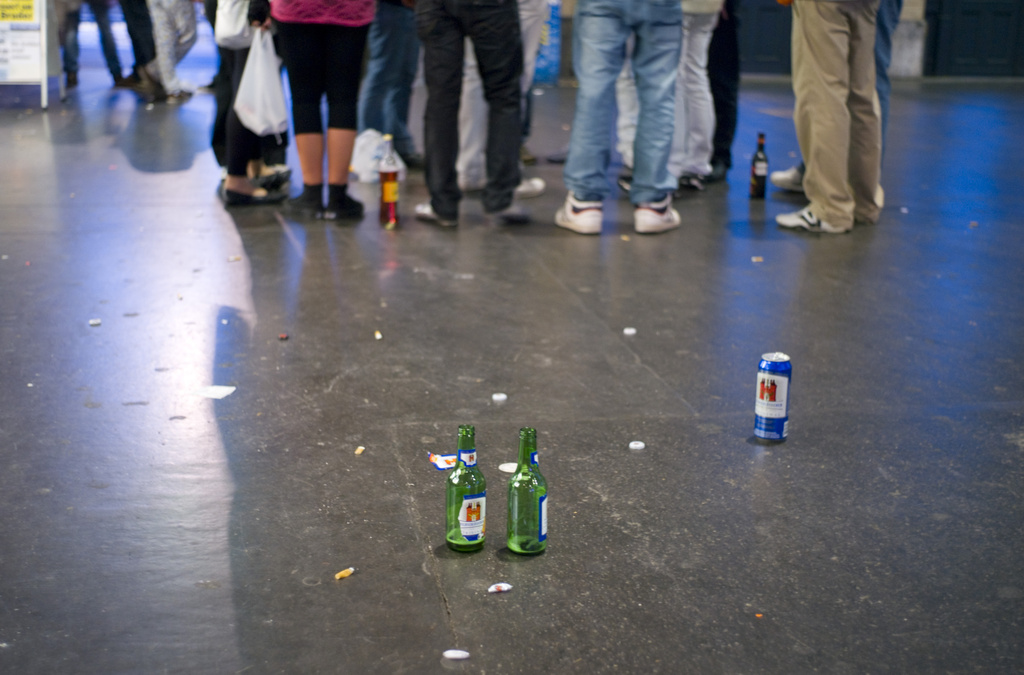Geneva eyes New York-style zero tolerance

Canton Geneva’s police director Isabel Rochat says the western Swiss city has much to learn from the Big Apple in how to tackle crime.
She was part of a delegation meeting New York police and security experts this week. Insecurity in Geneva has become a hot topic with both the Swiss foreign ministry and the United Nations openly expressing their concerns.
“Geneva can learn from New York’s experiences. Although you can’t directly compare Geneva and New York there are elements in the fight against crime that could also be applied in Geneva,” Rochat told journalists on Thursday after meetings with city officials and specialists.
In the 1990s New York Mayor David Dinkins and his successor Rudolf Giuliani helped transform the metropolis of eight million people into one America’s safest cities by means of radical policing reforms – more police, zero tolerance and tougher justice – that led to sudden and significant drops in both petty and serious crime.
Rochat said she was particularly impressed by the well-known “broken windows” theory which was widely adopted in New York. This found that in neighbourhoods and on streets where a broken window – either on a building or car – is not repaired, it quickly leads to others being broken. If nothing is done, the reputation of that area quickly deteriorates.
To counteract this tendency, the authorities must, in close collaboration with local people, ensure that neighbourhoods remain pleasant places to live and do not develop into lawless, squalid areas where people feel unsafe, said the minister.
Major concern
Security has once again become a major issue in Geneva, which is regularly ranked in the top ten of quality-of-living listings but continues to hold the top spot as the Swiss city with the highest number of crimes per inhabitant – 179.5 per thousand in 2010. This compares with 49,000 crimes and 536 murders committed in New York last year.
Members of the cantonal government, including Rochat, met Swiss Foreign Minister Micheline Calmy-Rey on September 12 to discuss the issue.
The meeting followed the alleged violent assault on the son of a United Nations diplomat in the centre of Geneva in July and a spate of burglaries of diplomatic missions, which gained widespread attention.
Following the reported attack in July, the UN issued a warning to its staff about going out alone in the city at night. The foreign ministry also said it was “concerned” by the “deterioration of the security situation in recent months”.
More visible police
Rochat told journalists that to reduce feelings of insecurity, which are often perceptions, a more visible police presence was needed.
There is already a willingness to beef up the Geneva force. Rochat has announced the future deployment of 200-300 additional officers and a 25 per cent increase in foot patrols both day and night.
And at the beginning of September the cantonal parliament proposed to create 250 administrative detention places to imprison asylum seekers who are repeat offenders for up to 24 months while preparing their return home.
But a larger police presence cannot solve all the problems, she said.
Mental change
The minister wants the Geneva force to be reorganised so that it is anchored more within the local population and seen as a partner.
“We need a cultural change; a change of mentality. It takes two to dance the tango – the population must respect the police and work with them,” she commented. “They need to be a community police force who people know.”
Where necessary, the police must engage forcefully and not allow lawless areas to develop.
“There needs to be zero tolerance when it comes to criminal acts, not just via repression, but based on cooperation,” she said.
It is important that officers clearly respect human rights and do not generate fear as “Geneva is the birthplace of human rights after all”.
American political scientist Daniel Warner, the former director of the Geneva-based Centre for International Governance at the Graduate Institute, warned New York should not be seen as the ultimate security model.
“What Giuliani tried was interesting,” he told Swiss national radio. “They put more police on the streets with fewer administrative tasks. Under zero tolerance immediately the police didn’t allow people to hang around in the metro and other places, like they do here in Geneva at Cornavin Station.
“Giuliani cleared 42nd Street where there are lots of tourists but in lots of other neighbourhoods there was no change.”
Rochat’s visit to New York was part of an official trip by a Geneva government delegation to the United States and the capital, Washington.
She has also recently visited Basel and the French city of Lyon for inspiration on security strategies.
Last October the Geneva authorities published a survey showing that around 33 per cent of the 1,082 people questioned at diplomatic missions, international organisations and multinationals in Geneva felt there had been a “substantial deterioration” in security in recent years, while 45 per cent said it had “worsened slightly”.
It also found one in ten had been victims of burglary or street crime in the past three years.
Yet Geneva was still ranked as the third most livable city in the world in 2011, according to Mercer’s quality of living survey.
And in the Geneva poll 92 per cent of people said they would recommend Geneva to their family and friends, with 77.3 per cent saying the quality of life was good. Only 18.7 per cent said it was “average” and four per cent “bad”.
(Adapted from German by Simon Bradley)

In compliance with the JTI standards
More: SWI swissinfo.ch certified by the Journalism Trust Initiative













You can find an overview of ongoing debates with our journalists here . Please join us!
If you want to start a conversation about a topic raised in this article or want to report factual errors, email us at english@swissinfo.ch.